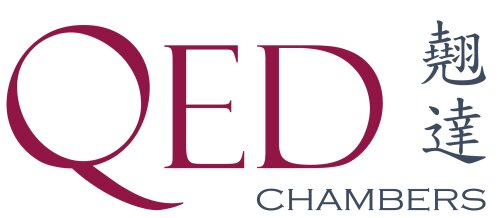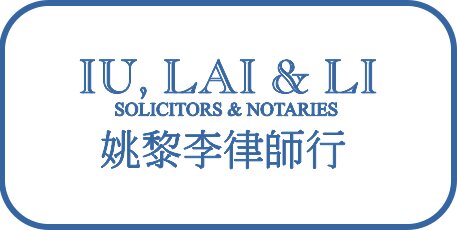Best Restructuring & Insolvency Lawyers in Admiralty
Share your needs with us, get contacted by law firms.
Free. Takes 2 min.
List of the best lawyers in Admiralty, Hong Kong
Hong Kong Restructuring & Insolvency Legal Articles
Browse our 1 legal article about Restructuring & Insolvency in Hong Kong written by expert lawyers.
- Navigating Hong Kong-Mainland China Cross-Border Insolvency
- The mutual recognition framework allows Hong Kong liquidators to apply for judicial assistance to manage distressed assets in Mainland China. The process relies on the 2021 Record of Meeting between the Supreme People's Court and the Hong Kong Government. Recognition is currently restricted to three designated pilot areas: Shanghai, Xiamen,... Read more →
About Restructuring & Insolvency Law in Admiralty, Hong Kong
Admiralty, located in the heart of Hong Kong Island, is a central business district known for hosting multinational corporations, major law firms, and key financial institutions. As a commercial hub, many businesses in Admiralty may face financial challenges, making restructuring and insolvency an important legal area. Restructuring and insolvency law deals primarily with the legal processes and solutions available to companies and individuals facing financial distress. In Hong Kong, such matters are governed by statutes and court practices tailored to maintain business stability, protect creditor rights, and enable distressed entities to either restructure and continue operating or undergo an orderly wind-down.
Why You May Need a Lawyer
Navigating restructuring and insolvency challenges can be complex and legally demanding. There are several situations where you may require legal help in Admiralty, Hong Kong:
- Your business is struggling to pay its debts or facing financial uncertainty.
- You are a creditor seeking to recover funds from an insolvent company.
- You are considering restructuring arrangements to allow your company to survive and continue operations.
- Your company has received a statutory demand or a winding-up petition.
- You are a director concerned about your legal duties should your company become insolvent.
- You want to purchase or invest in distressed assets or entities.
- There is a potential cross-border element, as is common in Admiralty given its international business profile.
- You require help with court applications or responding to legal proceedings related to insolvency.
An experienced lawyer can help you understand your rights, evaluate your options, negotiate with creditors, safeguard your assets, and comply with local laws.
Local Laws Overview
Restructuring and insolvency in Admiralty, Hong Kong, are primarily governed by the Companies (Winding Up and Miscellaneous Provisions) Ordinance (Cap. 32) and the Companies Ordinance (Cap. 622). The law provides a structured framework for creditors, businesses, and individuals to handle financial distress. Key aspects include:
- The distinction between voluntary and compulsory winding up of companies.
- Appointment and powers of liquidators to realize company assets and distribute proceeds to creditors.
- Statutory demand process as a precursor to winding-up proceedings.
- Recognition of cross-border insolvency under the UNCITRAL Model Law, albeit with some limitations.
- Provisional liquidation as a potential mechanism to facilitate restructuring whilst protecting assets and operations.
- Directors’ duties and liabilities in the context of insolvency, including wrongful trading and fraudulent trading provisions.
- Potential for schemes of arrangement, offering a court-supervised way for companies to restructure debt with creditor approval.
The Hong Kong courts, particularly the Companies Court, play a significant role in overseeing insolvency and restructuring matters, ensuring compliance with legal procedures and fair treatment of parties.
Frequently Asked Questions
What is the difference between restructuring and insolvency?
Restructuring generally refers to legal and financial steps taken to reorganize a company’s debts or business operations to avoid insolvency. Insolvency occurs when a company is unable to pay its debts when they are due, possibly resulting in liquidation or winding-up.
How do I know if my company is insolvent?
Your company may be insolvent if it cannot pay its debts as they fall due (the cash flow test) or if its liabilities exceed its assets (the balance sheet test). A qualified accountant or lawyer can help assess your company’s financial position.
What is a statutory demand?
A statutory demand is a written demand served on a company requiring payment of a debt exceeding HKD 10,000 within 21 days. Failure to pay or settle the demand may lead to winding-up proceedings.
What is liquidation or winding-up?
Liquidation, also known as winding-up, is the legal process of dissolving a company. Assets are collected and sold to pay creditors, and the company is removed from the Companies Register.
Can directors be held personally liable for company debts?
Generally, directors are not personally responsible for company debts, but liability may arise if they engage in wrongful trading, fraudulent trading, or breach their director duties.
What is a scheme of arrangement?
A scheme of arrangement is a court-approved agreement between a company and its creditors or shareholders to restructure debts or reorganize the business. Approval must be obtained from the requisite majority of creditors or shareholders.
How do cross-border insolvency proceedings work in Hong Kong?
Hong Kong courts recognize some cross-border insolvency principles, especially with mainland China, but the Model Law on Cross-Border Insolvency has not been fully implemented. Local legal advice is crucial in cross-border cases.
Can creditors initiate insolvency proceedings against a company?
Yes, creditors can present winding-up petitions or obtain court orders for the liquidation of a debtor company if statutory requirements are met.
What are the protections for creditors in the insolvency process?
Creditors are entitled to a fair distribution of assets and can challenge preferential or undervalue transactions made before insolvency. The process is court-supervised to ensure creditor rights are protected.
What should I do if my company faces insolvency?
Seek legal and financial advice immediately, assess all restructuring options, and ensure compliance with your statutory obligations as a director or business owner. Early advice often preserves more options and limits risk.
Additional Resources
Several organizations and governmental bodies in Hong Kong provide resources and support relating to restructuring and insolvency:
- Companies Registry - Maintains records of all Hong Kong companies and provides guidance on winding-up procedures.
- Official Receiver's Office - Handles the administration of companies and individuals facing bankruptcy or winding-up.
- The Law Society of Hong Kong - Provides listings of qualified legal practitioners specializing in restructuring and insolvency.
- Hong Kong Institute of Certified Public Accountants (HKICPA) - Offers resources on insolvency and restructuring practices and regulations.
- Insolvency Practitioners Association of Hong Kong - Offers support and guidance for professionals and businesses involved in insolvency matters.
Next Steps
If you are concerned about restructuring or insolvency in Admiralty, Hong Kong, it is important to act promptly. Start by gathering financial information, documenting all creditor communications, and identifying any court documents received. Contact an experienced lawyer who specializes in insolvency and restructuring law to discuss your situation and understand your legal options. Many law firms in Admiralty offer initial consultations to assess your needs. Proactive legal advice can help safeguard your interests, comply with statutory requirements, and explore solutions such as restructuring, formal liquidation, or alternative dispute resolution.
Preparing accurate information about your financial status and objectives will help your lawyer provide the best advice and representation for your circumstances.
Lawzana helps you find the best lawyers and law firms in Admiralty through a curated and pre-screened list of qualified legal professionals. Our platform offers rankings and detailed profiles of attorneys and law firms, allowing you to compare based on practice areas, including Restructuring & Insolvency, experience, and client feedback.
Each profile includes a description of the firm's areas of practice, client reviews, team members and partners, year of establishment, spoken languages, office locations, contact information, social media presence, and any published articles or resources. Most firms on our platform speak English and are experienced in both local and international legal matters.
Get a quote from top-rated law firms in Admiralty, Hong Kong — quickly, securely, and without unnecessary hassle.
Disclaimer:
The information provided on this page is for general informational purposes only and does not constitute legal advice. While we strive to ensure the accuracy and relevance of the content, legal information may change over time, and interpretations of the law can vary. You should always consult with a qualified legal professional for advice specific to your situation.
We disclaim all liability for actions taken or not taken based on the content of this page. If you believe any information is incorrect or outdated, please contact us, and we will review and update it where appropriate.















